Noor Jehan

Subscribe to read full article
This section is for paid subscribers only. Our subscription is only $37/- for one full year.
You get unlimited access to all paid section and features on the website with this subscription.
Not ready for a full subscription?
You can access this article for $2 , and have it saved to your account for one year.
- Real Name: Allah Rakhi Wasai
- Born: 21 September 1926 (Kot Murad Khan, Kasur now Pakistan)
- Died: 23 December 2000 (Karachi, Pakistan)
- Primary Cinema: Punjabi
Noor Jehan, the nightingale of Greater Punjab, warbling in Punjabi attained the commanding heights of popularity by bringing a revolution in the world of popular and folk music. She rose from near oblivion of the backwaters of Kasur to the dizzy heights of stardom, with songs ranging from classical to folk and ghazal to geet. Rendering a sorrowful song, her voice appeared soaked in tears and singing a joyous tune, the notes came forth as if dancing out of her moving lips. Her articulation of turns, the enunciation of emphasis, pauses and stresses belong to the most creative dimension of virtuosity. Noor Jehan, the chanteuse, was the quintessential Pakistani cultural symbol, but the magic of her voice was universal. A flamboyant charismatic woman, Noor Jehan was not only an accomplished actress, a gifted singer, an occasional poet and composer, but also a connoisseur of Urdu and Punjabi literature and a glamorous fashionista.
She was born Allah Rakhi Wasai to Mian Madad Ali and Fateh Bibi, in a family of professional musicians on September 21, 1926, at Kot Murad Khan (Kasur now in Pakistan). She soon began to display a talent for singing. She was given under the tutelage of a sarangi-player Gaamey Khan, who remained her lifelong teacher. She was also groomed by Kajjan Bai and Bade Ghulam Ali Khan. She studied the grammar of classical music and voice culture and began to sing the popular items of Akhtaribai Faizabadi and Mukhtar Begum, the leading doyennes of the era. As her parents were followers of the peer of Hujra Shah Maqeem, her debut was arranged at Mohalla Peer Gilanian, inside Lahore’s Mochi Gate. Allah Wasai performed so well on this occasion that Peer Sahib himself blessed her.
At the age of 7, little Allah Wasai joined her elder sisters Eedan and Haider Baandi at Mahabir Theatre, Lahore. She stood on stage to sing Hanstey Hain Sitarey Ya Shah-e-Medina, a naat composed by G.A. Chishti. In 1933 Mian Madad set up his own theatre in Ferozepur. Once, a leading Parsi theatre company representative visited and was sufficiently impressed by young Allah Wasai’s singing to invite his three daughters to perform in Calcutta. Mukhtar Begum was astonished to hear the melodious voice of beautiful Allah Wasai, who had eyes like black pearls and cheeks like apples. She advertised the girl and her two sisters as ‘Punjab Mail’ and recommended them to many producers.
A fateful audience with Seth Sukhlal Karnani and his mistress Jahanara Kajjan got Allah Wasai rechristened as Noor Jehan. A few weeks later, sound stage 6 of Madan Theatre’s studio became the setting of an off-camera orchestra accompanying the young Noor Jehan. She recorded her first Punjabi film song for Sheila alias Pind Di Kuri (1936), rendering it plaintively without a hint of nervousness. Just before the last antara, she broke into an impromptu alaap of taans in a well-cultured and chiseled voice that completely defied her age. Sheila did a roaring business and her song Lang Aaja Patan Jhana Da became a smash hit.
As Baby Noor Jehan, she made her name in a few Calcutta productions like Misar Ka Sitara (1935), Azaadi, Imperial Mail (1939), Mr. & Mrs. Bombay (1936), Nari Raaj, Fakhar-e-Islam, Taran Haar and Namumkin (1946), etc. She played the role of Heer's childhood in the Punjabi hit film Heer Sayal (1938) and also sang a popular number ‘Sohneyan Desan Andar Des Punjab Ni Saiyo..’. Respite came in the form of a highly successful venture Sassi Punnu (1939), where she enacted the childhood of Sassi. In 1939, the Second World War broke out and her family returned to Punjab. She settled at Taxali Gate, Lahore and started participating in radio programmes.
While she got her start from Calcutta, it was in Lahore, where the limelight flooded her. Seth Dalsukh M. Pancholi had an instant aural insight into her vocal virtues and signed her as songstress for his film Gul Bakavli (1939). Music director Master Ghulam Haider gave her classics like Shala Jawanian Mane… and Pinjre De Wich Qaid Jawani... on the road to lasting fame. Baby Noor Jehan got recognition as an artist and as a singer. From then on there was no looking back for the precocious child.
This was followed by Pancholi’s musical super hit Yamla Jatt (1940) in which the ‘Baby’ tag was dropped and she played second lead as Noor Jehan. She also rendered five melodious songs including ‘Kachiyan Ve Kaliyan..’ and ‘Main Koel Waangar..’ which proved smashing hits with the music connoisseurs. By now, her sister and brother Shafi had also moved to Lahore and the family settled in Bazar-e-Sheikhpurian. Buoyant by the mega-success of Yamla Jatt, Seth Pancholi cast her in the lead role of Chanda in Chaudhry (1941). Her six songs like ‘Bas Bas Wey Dholna..’ and ‘Dekho… Ehdi Kaisi Sohni Chaal..’ accorded her instant mass popularity. She went from proverbial success to success, from glory to glory.
The following year Noor Jehan played the heroine’s role opposite Pran in Pancholi’s Khandaan (1942) directed by Shaukat Husain Rizvi. Her haunting numbers ‘Tu Kaun Si Badli Mein..’ and ‘Liye Jahan Mein..’ took the audience by storm. Noor Jehan was heralded as a star of dazzling luminosity and film offers began pouring in. Both Rizvi and Noor got emotionally involved during the shooting and got married. They had three children.
Thereafter, the couple moved to Bombay, where Rizvi made the film Naukar (1943) with Noor Jehan in the second lead. She played the role of heroine in Nadan (1943). In Dost (1944), Motilal was her hero while Shaukat Husain Rizvi played her brother’s role and gave playback to Husn Bano for the first time. In Lal Haveli (1944), tragedienne Meena Kumari acted as the young Noor Jehan. In Badi Maa (1945), Noor Jehan played the lead with sister Lata and Asha in supporting roles. In Zeenat (1945), she played as the young and old heroine, her inimitable rendition of ‘Bulbulo Mat Ro Yahan..’ earned her the title ‘Mallika-e-Tarranum’. Zeenat proved extremely successful and its qawali ‘Aahen Na Bharin..’ is still fondly remembered by filmgoers.
Noor Jehan acted in the enduring classic film Anmol Ghadi (1946) with super hit songs like 'Awaz De Kahan Hai..', 'Jawan Hai Mohabbat..' etc. In Jugnu (1947) she starred opposite Dilip Kumar; the duet 'Yahan Badla Wafa Ka Bewafai Ke Siva Kya Hai..' catapulted the then struggling Mohammed Rafi. Mirza Sahiban (1947) had many hits like 'Aaja Tujhe Afsana Judaai..’ and 'Haath Seene Pe Jo Rakh Do..'.
After Partition in 1947, Noor Jehan and Shaukat Rizvi moved to Lahore where they were allotted the riot-vandalized Shori Studios, renamed as Shahnoor Studios. Both together produced and directed Chann Wey (Punjabi), making her Pakistan's first woman director. The film was a runaway success on account of its popular numbers like Tere Mukhre Da Kala Til and Chan Diya Toteya. This was followed by another box-office hit Dupatta, but Gulnar did average business. During the shooting of Patey Khan, Noor fell in love with its distributor M. Naseem and her marriage with Shaukat broke up.
Her other notable films as actress and singer included: Lakht-e-Jigar, Intezar, Nooran, Neend, Choomantar, Anarkali, and Koel. With the failure of her films Pardesan and Ghalib, M. Naseem lost interest in her and they separated. Noor Jehan last starred in Baaji (1963) and then bade farewell to acting. She plunged headlong into playback singing, often recording five to six songs in a day. As a playback singer, she touched new heights with Mousiqar, Lakhon Mein Aik, Mirza Jatt, Dosti, Heer Ranjha, Chan Waryam, Sholey, Moula Bakhsh and innumerable other films. She continued to be the reigning queen of the Pakistan film and music industry until her retirement in the early 1990s. In her later years, she overexposed herself and descended to the level of singing double-entendre songs. Her last film as a playback singer was a Punjabi movie Sakhi Badshah (1996) with her swan song ‘Ki Damm Da Bharosa Yaar..’
Her vast repertoire included riveting hits composed by icons like Master Gulam Haider, Feroz Nizami, Naushad, Rasheed Attre, Khwaja Khursheed Anwar, Baba Chishti and Nisar Bazmi. She was also gifted with the company of some of the best-known literati, whose works she sang to immortality. Faiz Ahmed Faiz granted Noor Jehan a unique honour by presenting his magnum opus Mujh Se Pehli Si Mohabbat to her as she had interpreted it with her soul. Her colorful personality had inspired Manto to sketch Noor Jehan as Suroor-i-Jehan. She had developed a love for poetry and started recording works of leading Urdu poets, thereby strengthening her iconic stature. Mirza Ghalib, her penultimate film, proved to be a bridge between her past and her future.
Noor Jehan visited India in 1982 to participate in the golden jubilee celebrations of the talkies in India. She performed live for the show ‘Mortal Men, Immortal Melodies’ and rendered Mujh Se Pehli Si Mohabbat and Awaz De Kahan Hai The performer and her audience wept together. That night, she achieved what no ambassador had ever achieved before. Lata Mangeshkar, the Indian melody queen, is an ardent fan of the Malika-e-Tarannum.
Noor Jehan was also known as the Elizabeth Taylor of the Pakistan entertainment industry because of her various love affairs and multiple marriage alliances. The movie industry cashed in on her looks and lilting vocals, while the news media thrived on the sensation of the scandals she generated. Marriage to Rizvi took her to Broadway, to new and vaster horizons. But marriage hit the rocks and floundered after ten years and three children. Nazar Mohammed, the father of cricketer Muddasar Nazar, got hurt while escaping through the window when Noor’s husband Rizvi caught them together. In 1959, she married the nine years-younger actor Ayaaz Durrani, had three children, and then divorced in 1979. Though betrayed by her second spouse, in the end, she was the one to bail him out of prison in London when he was arrested for drug-trafficking.
Once asked by author Kuldip Nayar about the exact count of her recorded songs, Noor Jehan, who was well known for her sharp sense of humour, quipped, ‘I have neither kept an account of my committed sins nor of the songs that I have sung for both are innumerable’.
She was the proud recipient of innumerable awards, including the highest Pakistani civilian honour, Tamgha-e-Imtiaz. She also got the first President's Award for being the best singer/actress of the film Intezar (1956).
Noor Jehan was suffering from a heart ailment for many years and her end came at her daughter Shazia’s residence on December 23, 2000, in Karachi. She remains alive even today through her haunting melodies like Lo Chal Diye Wo Hum Ko Tasalie Diye Beghair.
-
Filmography (21)
SortRole
-
Anjaan Hai Koi 1969
-
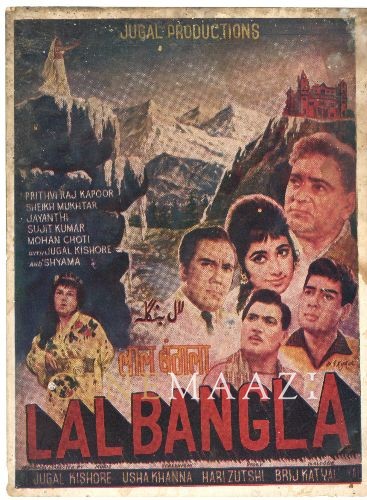
Lal Bangla 1966
-
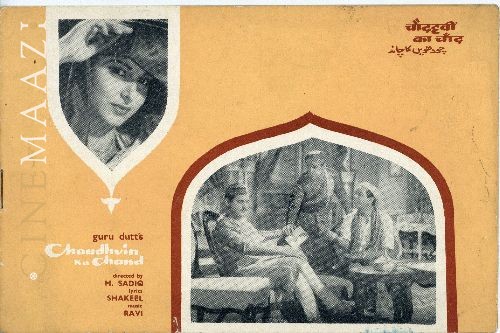
Chaudhvin Ka Chand 1960
-
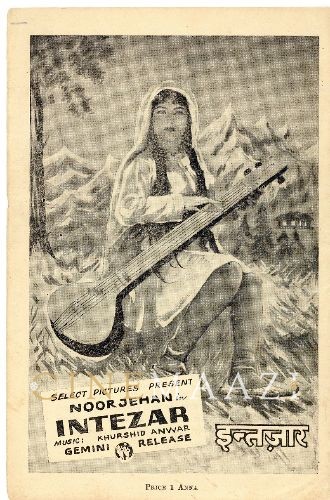
Intezar 1956
-
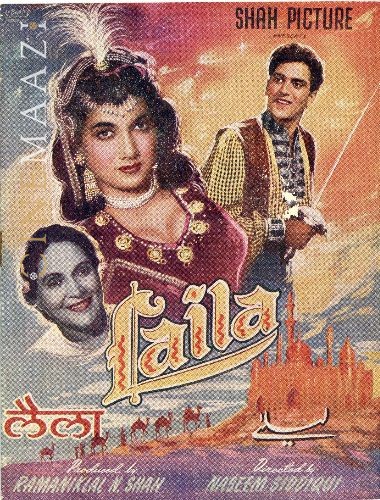
Laila 1954
-
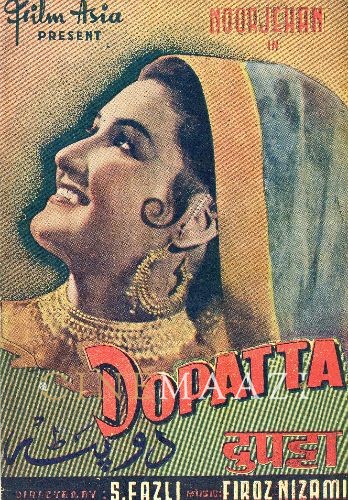
Dopatta 1952
-
Jugnu 1947
-
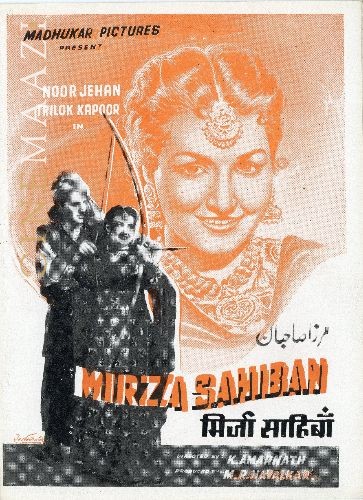
Mirza Sahiban 1947
-
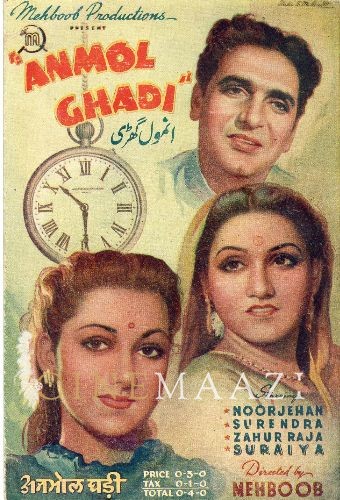
Anmol Ghadi 1946
-
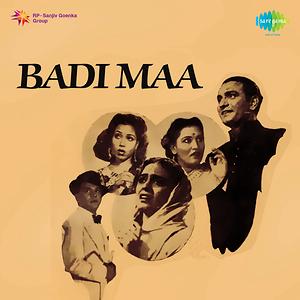
Badi Maa 1945
-
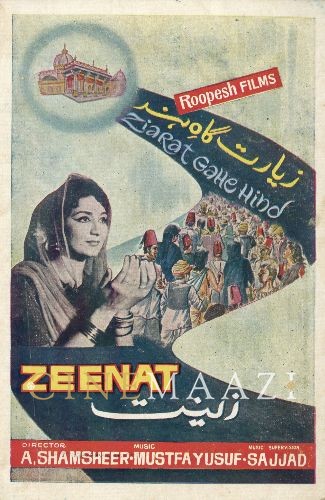
Zeenat 1945
-



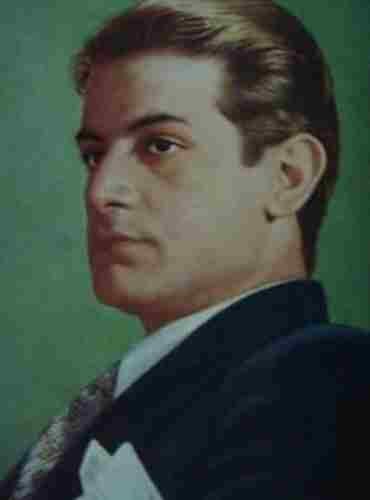
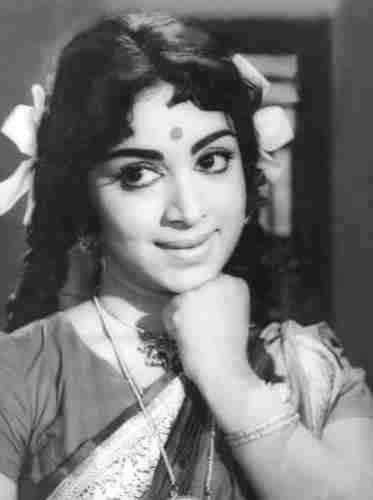
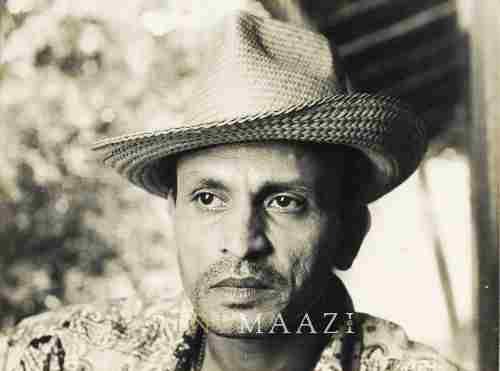
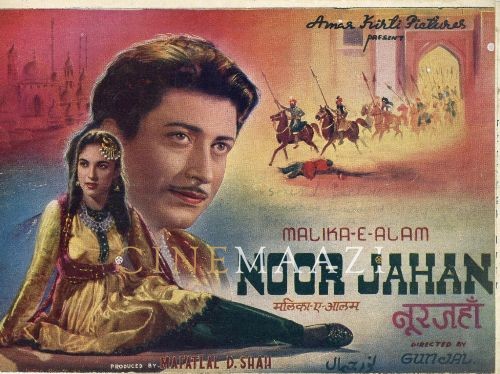

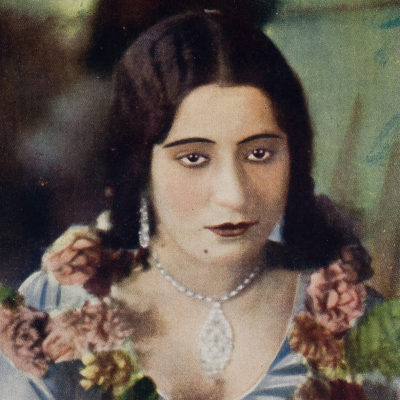

.jpg)



